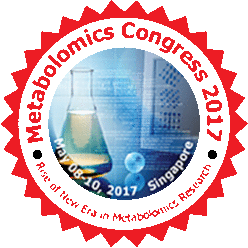Kambiz Gilany
Avicenna Research Institute, Iran
Title: Metabolomics study of human seminal plasma of infertile male
Biography
Biography: Kambiz Gilany
Abstract
Statement of the Problem: About 15% couples are infertile. The “male factor” contributes to half of infertility. In spite of the development of treatment for infertile men, many questions regarding etiology of the male infertility remain to be answered. The use of high-throughput techniques brings hopes to treatment of male infertility. Especially, at present, metabolomics studies have been recognized as an outlook for the systematization of specific biomarkers in approval of a better identification of male infertility. Human semen is a biological fluid that consists of spermatozoa and seminal plasma. The seminal plasma can be used as an excellent source for noninvasive detection and diagnostic test of the male infertility. We have used the seminal plasma for metabolomics studies as a screening tool to diagnose male infertility and for biomarker discovery.
Methodology & Theoretical Orientation: There are different approaches that can be used in metabolomics study. We have used the easiest and cheapest approaches for clinical diagnosis, the pattern-recognition methods using Raman spectrometry. Additionally, we have applied GC-MS/MS for biomarker discovery.
Findings: Using metabolomics fingerprinting, we were able to classify idiopathic infertile men and asthenozoospermia men in the different groups compared to the fertile men. Additionally, it was observed at metabolome level that, there was oxidative imbalance in the seminal plasma of these patients. Via metabolomics profiling, we showed that metabolome of the seminal plasma of the non-obstructive azoospermia patients can be used for detection of spermatogenesis, as a noninvasive technique. Furthermore, we identified 38 metabolites which showed deregulation in these patients and can be used as potential biomarker for detection of spermatogenesis.
Conclusion & Significance: We have shown that metabolomics study of infertile men have come successfully out of discovery phase using the biological material seminal plasma. We now need to go to the test validation stage for further development of the technology.

